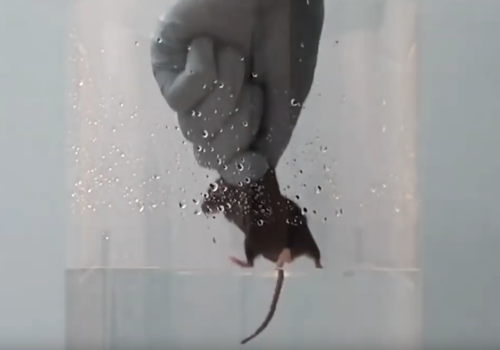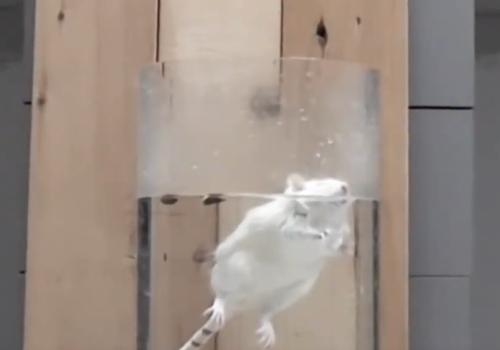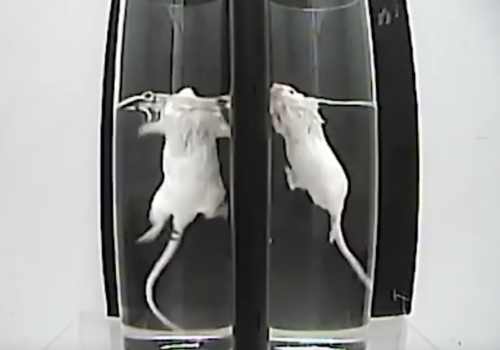Rats Forced to Swim in Cylinders of Water
Some form of this test has been carried out since at least the 1950s, when notorious Johns Hopkins University experimenter Curt Richter forced rats to swim in cylinders of water until they drowned. It was popularised in 1977 by an experimenter named Roger Porsolt, who called it the “behavioural despair test”.
Worthless Cruelty
Porsolt found that rats who’d been given human antidepressant drugs would struggle and swim for longer than other rats before starting to float, and he concluded that those who swam for less time were in a state of “despair”. But the test has been heavily criticised by other scientists who argue that floating is not a sign of despair but rather a positive sign of learning, conserving energy, and adapting to a new environment.



Thousands of Animals Abused
Together, pharmaceutical giants AbbVie (formerly part of Abbott Laboratories), Bristol-Myers Squibb, Eli Lilly, and Pfizer have subjected at least 5,461 mice, 1,066 rats, 748 gerbils, and 305 guinea pigs to the cruel forced swim test – as documented in 45 published papers and 16 patent applications over the past 30 years.
PETA US scientists identified 47 compounds that were tested on animals for the treatment of depression and found that none of them are currently approved to treat the condition in humans.
Bad Science
The forced swim test doesn’t accurately predict whether a drug will work as a human antidepressant. It yields positive results for compounds that aren’t prescribed as human antidepressants, such as caffeine, and negative results for compounds that are. This means that antidepressant compounds that could work in humans may be mistakenly abandoned based on the test.
These experiments do nothing more than terrify animals and delay the development of effective new treatments for depression that are so desperately needed.
After hearing from PETA entities, more than 15 major pharmaceutical companies, including AbbVie, Bristol Myers Squibb, and Pfizer, have committed to not using the forced swim test in the future.

